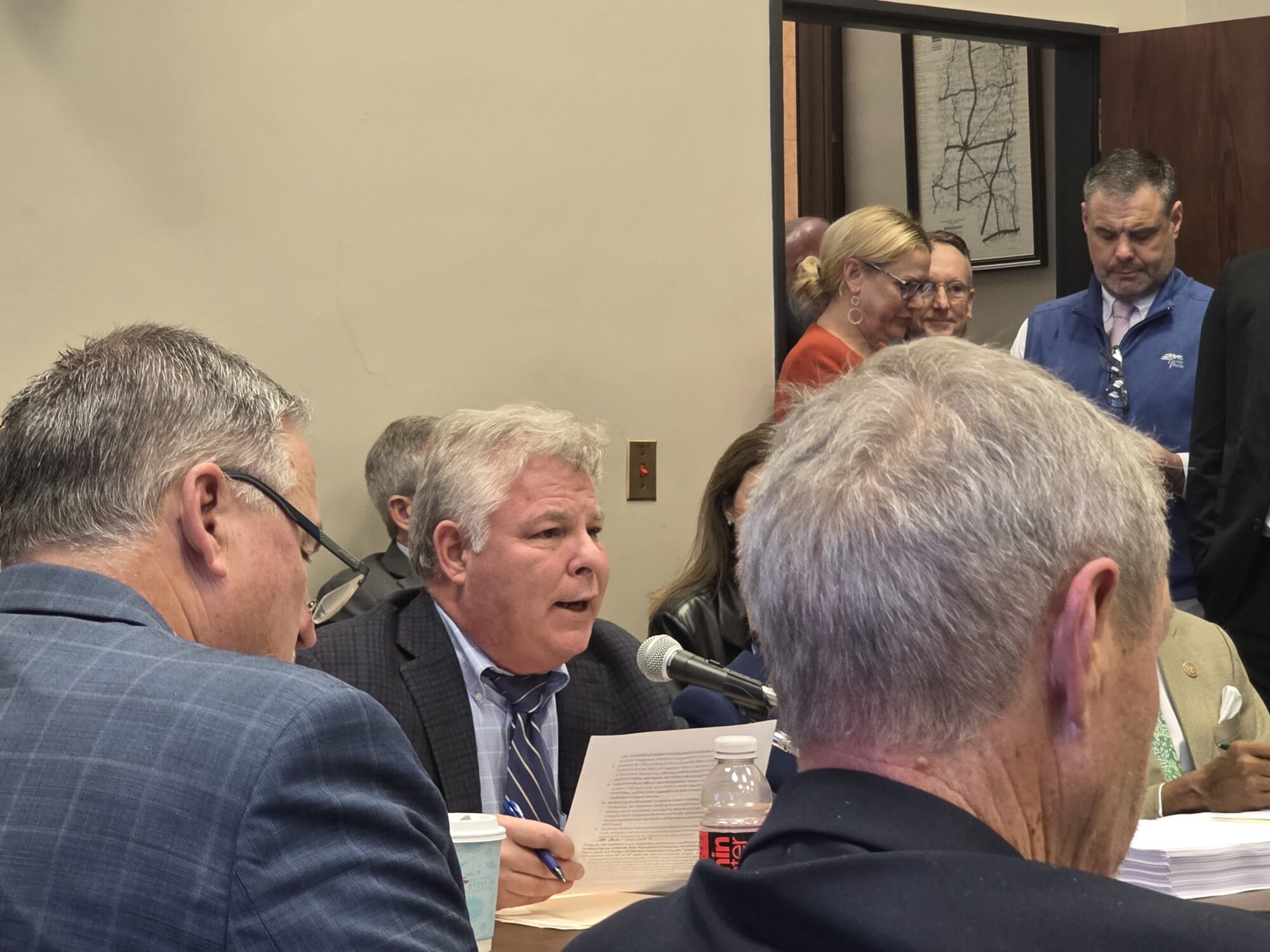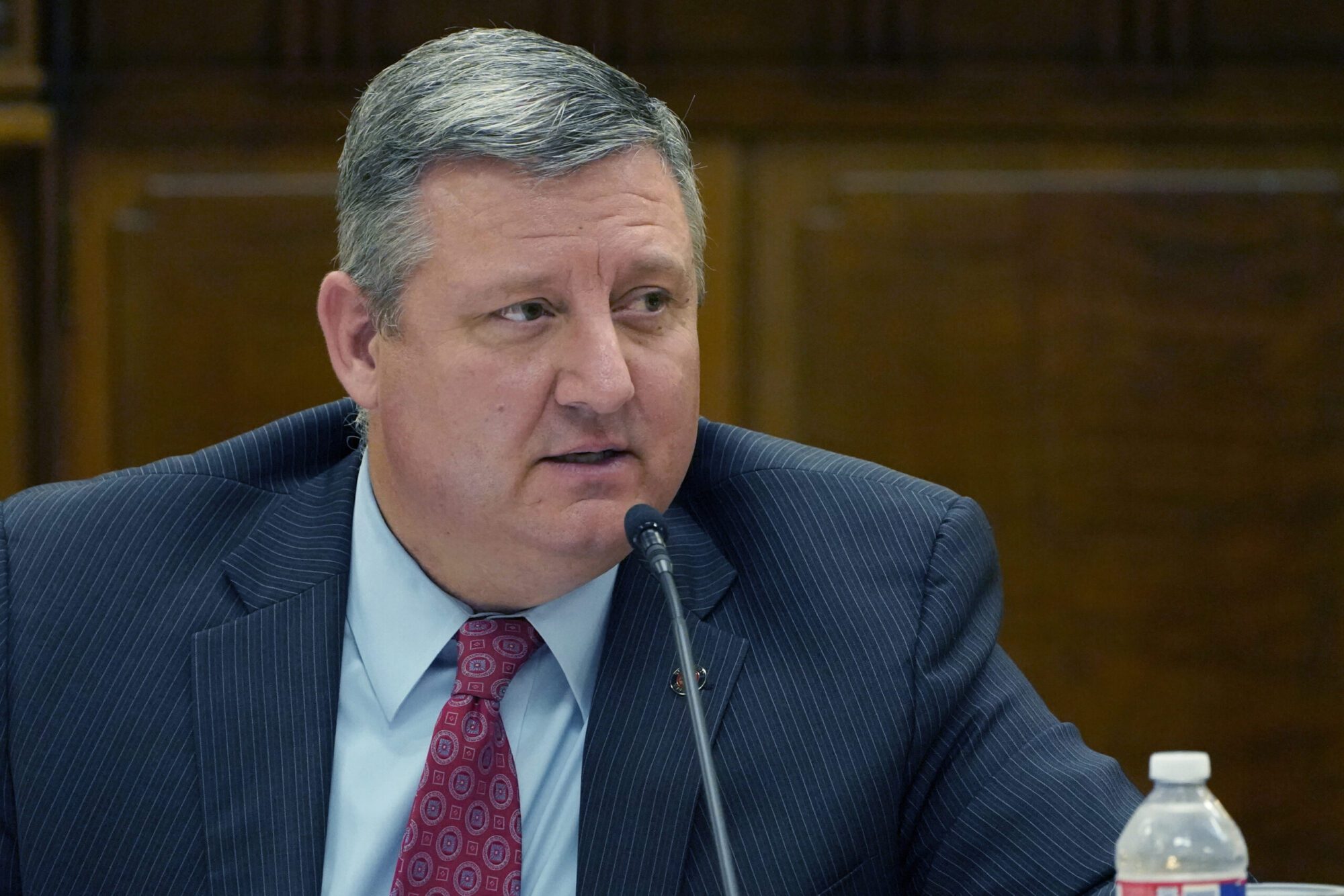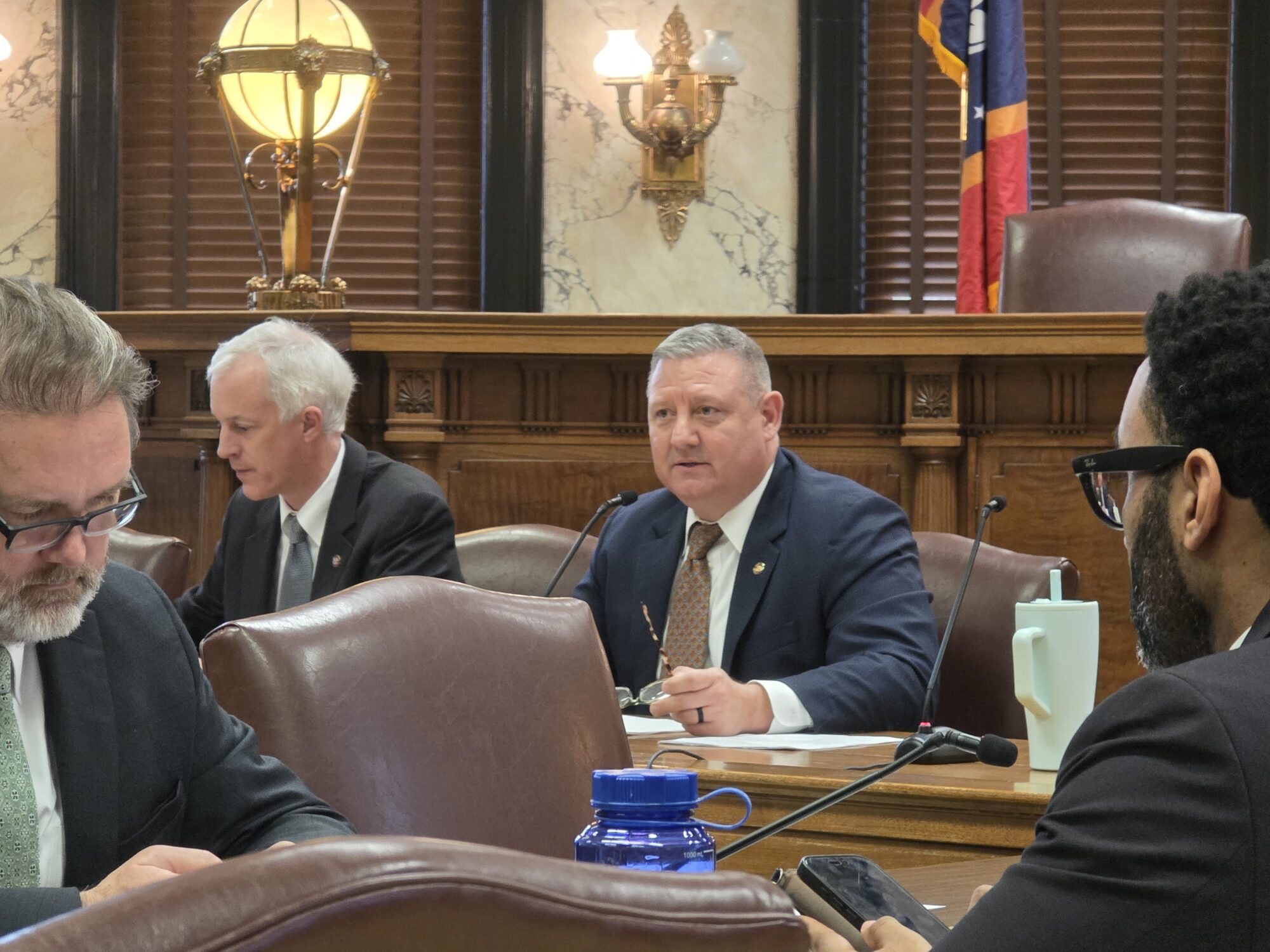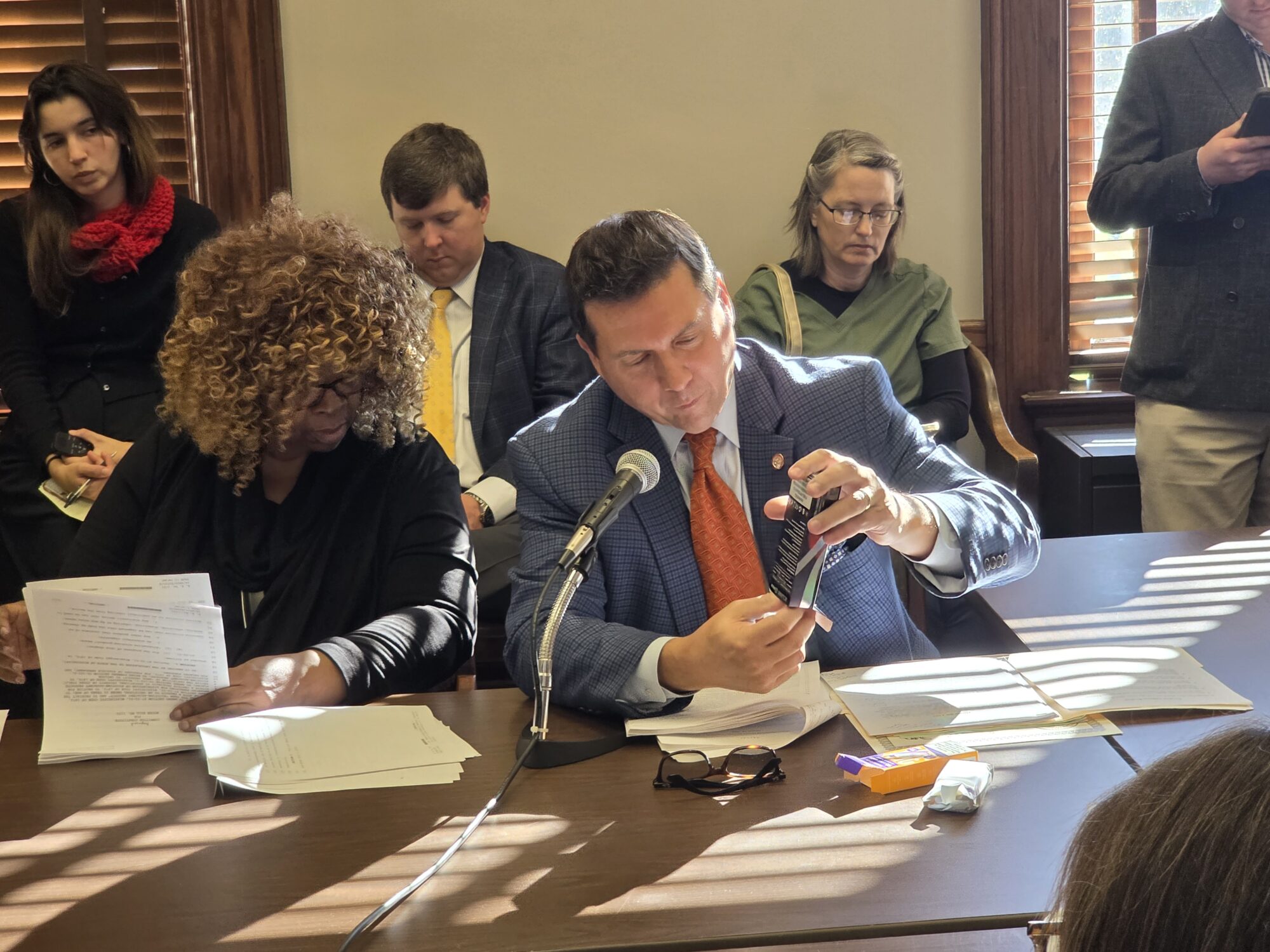
The Task Force is working to gather data necessary to make legislative recommendations before the 2024 session begins.
The “First Steps” early intervention program, administered by the Mississippi Department of Health (MSDH), supports families of infants and toddlers under three years of age who have a developmental delay.
First Steps is funded through state funds and a federal grant under Part C of the Individuals with Disabilities Education Act (IDEA).
In the 2023 legislative session, Senate Bill 2167 was passed to create an Early Intervention Task Force. The Task Force was charged with making recommendations to the Legislature to increase access to services currently provided by First Steps for developmentally delayed children between birth and the age of 3.
A meeting held by the Task Force on Tuesday addressed concerns about how to bill for services provided to families, how Medicaid factors into the equation, and whether the appropriate supporting information will be ready to present to the Legislature before this year’s December 1st deadline.
“If we could look at just those first two years in school, at a four and five year old, …. if you have a child who enters into a preK collaborative and they are struggling with the social, emotional and developmental issues, could they have been better had they been in an early intervention program?” said Dr. Susan Butress.
Dr. Butress is a professor of pediatrics at the University of Mississippi Medical Center and chair of the Task Force.
In discussions about accountability for the program, Dr. Butress said, “I agree we need some way to be able to judge how well the program is doing. Because in the real world early intervention for many of the milder developmental disorders, by the time a child enters school, if they get that appropriate intervention, they should be ready to learn and not struggle.”
As part of the fact finding process, members of the Task Force have been speaking with representatives from other states with programs similar to the one Mississippi hopes to build out.
Tuesday’s meeting included overviews of how systems in Alabama and Indiana are structured, best methods for collecting funds for services and expanding ways to determine eligibility.
The Task Force also wants to ensure services are provided to children in rural areas, not just within cities.
Kris Adcock, the senior deputy at the Mississippi Department of Health, said that within Alabama 3,992 children are in the early Intervention program, or about 2.33 percent of that state’s population aged 3 and younger. Mississippi is serving 1,592 children, or about 1.52 percent of that age group, said Emily Cloys with PEER Mississippi. Cloys added that Indiana is serving 11,346 children, or about 4.73 percent of that state’s population 3 and younger.
Also during the meeting, the Task Force reviewed the list of priorities compiled by its members in previous meetings.
The top five priorities identified included improving the referral process, increasing funding to expand and improve services, determining how a proposed “pay and chase” business model would work, changing the delivery model of the early intervention service, and finally, determining ways improve communication and coordination.
State Health Officer Dr. Daniel Edney has recommended the “pay and chase” model, where the state fronts payment and then seeks reimbursement.
As the Task Force moves forward, the goal is to have a draft of the report finalized by the start of November of this year, but there may be obstacles in the way.
“The Task Force is required to submit a report to the Legislature and the Department of Health with recommendations by December 1, 2023, so I really feel like we got to get a draft done by November 1, in order for the Task Force to meet probably multiple times in November to discuss and finalize the draft report,” Meri Claire Ringer of PEER said.
The doubt cast as to whether the Task Force could meet the deadline centered around the complex nature of some of the items on the list and the subsequent need for more time to gather facts.
“So we really don’t think, at this time, the Task Force will be ready to recommend a specific service delivery model by Dec. 1, 2023,” Ringer said. “But because changing the service delivery model is so important, we’ve heard it over and over at these Task Force meetings, it will require more research to really determine which model will work best in Mississippi. We’ve had some members contact us and express interest in hearing from more than two or three states and reviewing different types of models, for example a hybrid or hub model.”
Even if they can’t reach the deadline, Ringer feels policy or internal adjustments can be made before changes occur to the service delivery model, Ringer said.
Task Force members anticipate the need to move the current system from under the Mississippi State Department of Health and make it more local. MSDH also needs more time to determine the program’s cost, billing options, service areas and work out staffing.
Alternately, the Task Force could ask the Legislature to pass a bill that would require MSDH to develop the billing system model, set the priorities and responsibilities and extend the Task Force to assist the state agency in determining what model and billing system to employ.
“My idea of extending the Task Force, it would be more of like an advisory role. I would see it like not meeting as much as you are now, it would be more like once or twice a month or quarterly.” Ringer said.
Receiving and accepting funding is another priority for the Task Force so services can be expanded to help more children.
“To funding… let’s be very clear. Alabama is currently funding their program $11 million dollars per year more than Mississippi, and last year we were blessed to have a bump of $2 million. That all went out to providers. Before that we were operating on a million dollars, and you wonder why we’re here?” said Dr. Edney.
“We need to be blunt. We’re talking about big dollars. And I know for some colleges and universities, $10 million, is front pocket money, but at the Health Department that’s State Treasury money. That’s a lot of money.”
Adcock said a lot of the heavy lifting in working out a billing structure would require working with Medicaid and Edney added that the only way to use the pay and chase system will be for all services to be rendered by a Medicaid provider.
“They will have to be, otherwise this won’t work. And we have to have the opportunity to bill an outside payer source, or we won’t have the funding to cover it,” Edney said.
The next meeting of the Task Force will be Oct. 16.











